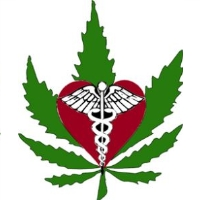San Jose Finalizes “de Facto Ban” on Medical Marijuana

If you don’t count the 200 or so California cities that have outright banned medical marijuana dispensaries, the state’s third-largest city, San Jose, arguably now has the toughest law (pdf) on the books.
The city council voted 7-3 to enact rules that severely limit how many dispensaries can operate, where they are located and where they get their pot from. Pot shop attorney James Anthony told the San Jose Mercury News, “Nobody can operate under those environments. It's a de facto ban and in kind of a sneaky way.”
Opponents said they would mount a referendum drive as they did in 2011 when the city passed a similar ordinance that was eventually rejected by the voters.
For now, tokers will have to start stockpiling weed to prepare for the changes that will be in full force by the summer of 2015, but kick in within a few months for about one-fourth of existing dispensaries located too close to homes under the ordinance.
The new law limits pot shops, new and old, to a handful of industrial zones that make up less than 1% of the city, instead of being scattered about town. That will probably force the vast majority of current shops to close. Dispensaries have to be at least 1,000 feet from schools, parks other areas where children gather, and certain business parks. Shops have to be at least 150 feet from homes and 500 feet from substance abuse centers.
The law also requires that businesses grow their pot indoors, onsite or at a location in Santa Clara County or a county contiguous to it. All products made from marijuana, including edible ones, must be created onsite.
Steve DeAngelo, co-founder of the famed Harborside Health Center, located in San Jose and Oakland, said that last requirement is a shop killer. He told the Huffington Post, “It won't be possible for any dispensary to produce the range of medicines that patients are going to require.” Harborside provides tinctures for severely epileptic kids among a range of medicinal products.
DeAngelo said Harborside said his San Jose dispensary is not in a legal zone and he is exploring his options. He is currently fighting closure orders from the U.S. Attorneys Office, which has been shutting down dispensaries and landlords who rent to them since late 2011 despite mixed messages from President Obama and Attorney General Eric Holder.
Marijuana is illegal under federal law. California voters legalized it in 1996 for medical use and authorized dispensaries in 2004. Some local jurisdictions have banned it, with the state Supreme Court’s blessing last year, and local, state and federal courts are considering myriad cases about various aspects of the drug’s use.
Three weeks ago, the California Assembly rejected a bill, AB 1894, that would have established statewide rules to help bring order to the chaotic rulemaking in localities across the state by regulating it like alcohol. The Department of Alcoholic Beverage Control (ABC) would have been empowered to set minimum statewide standards for cultivation, testing, transportation and sales while permitting local entities flexibility in shaping their own regulations.
Federal authorities say a coherent statewide legal structure for medical marijuana is a pre-requisite for them to back off their aggressive behavior.
–Ken Broder
To Learn More:
San Jose Medical Marijuana Dispensaries Face Tough New Rules (by Mike Rosenberg, San Jose Mercury News)
California's Third-Largest City Just Cracked Down on Pot Shops, and It's Part of a Larger Problem (by Carly Schwartz, Huffington Post)
San Jose Leaders Approve Tough New Regulations for Medical Marijuana Dispensaries (by Chris Filippi, CBS San Francisco)
San Jose Approves New Regulations on Medical Marijuana Dispensaries (by Nick Smith, ABC News)
Free Weed for San Jose Voters Who Can Remember Where the Offer Came From (by Ken Broder, AllGov California)
- Top Stories
- Controversies
- Where is the Money Going?
- California and the Nation
- Appointments and Resignations
- Unusual News
- Latest News
- California Forbids U.S. Immigration Agents from Pretending to be Police
- California Lawmakers Urged to Strip “Self-Dealing” Tax Board of Its Duties
- Big Oil’s Grip on California
- Santa Cruz Police See Homeland Security Betrayal in Use of Gang Roundup as Cover for Immigration Raid
- Oil Companies Face Deadline to Stop Polluting California Groundwater




